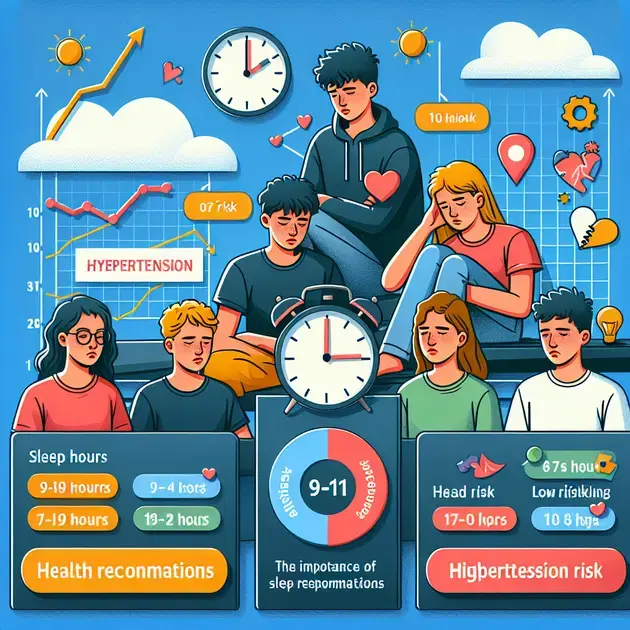Obtaining enough sleep is crucial for overall health and well-being, especially for adolescents. A recent study has shed light on the importance of getting adequate sleep in reducing the risk of hypertension among teenagers.
Hypertension, also known as high blood pressure, is a serious condition that can lead to various health problems, including heart disease and stroke. While it is commonly associated with adults, recent research has shown that it can also affect adolescents.
The study aimed to investigate the relationship between sleep duration and hypertension in adolescents. The findings revealed a strong correlation between the two variables. Adolescents who met the recommended sleep guidelines of nine to 11 hours per day had a significantly lower risk of developing hypertension compared to those who did not.
These findings are particularly significant considering the growing concern over the increasing prevalence of hypertension among adolescents. Sedentary lifestyles, poor dietary choices, and excessive screen time have all been identified as contributing factors to this concerning trend. However, the role of sleep in preventing hypertension has often been overlooked.
Sleep plays a critical role in regulating blood pressure and maintaining cardiovascular health. During sleep, our body undergoes various physiological processes that help maintain healthy blood pressure levels. Insufficient sleep disrupts these processes, leading to imbalances and an increased risk of hypertension.
It is essential for adolescents to prioritize their sleep and establish healthy sleep habits. Adequate sleep not only reduces the risk of hypertension but also promotes overall physical and mental well-being. Here are a few tips to help adolescents achieve better sleep:
1. Set a regular sleep schedule: Going to bed and waking up at the same time every day helps regulate the body’s internal clock and improves sleep quality.
2. Create a sleep-friendly environment: Ensure that the bedroom is cool, quiet, and dark. Remove any distractions, such as electronic devices, from the sleeping area.
3. Limit caffeine intake: Consumption of caffeine, found in coffee, tea, and energy drinks, can interfere with sleep. Adolescents should avoid these beverages, especially in the afternoon and evening.
4. Establish a bedtime routine: Engaging in relaxing activities before bed, such as reading or taking a warm bath, signals the body to prepare for sleep.
5. Avoid excessive screen time: The blue light emitted by electronic devices can disrupt the sleep-wake cycle. Adolescents are advised to limit their screen time, especially in the hours leading up to bedtime.
In conclusion, this study emphasizes the importance of adequate sleep in reducing the risk of hypertension among adolescents. By following the recommended guidelines of nine to 11 hours of sleep per day, teenagers can significantly improve their cardiovascular health and overall well-being. Encouraging healthy sleep habits should be a priority in promoting a healthy lifestyle for young individuals.
